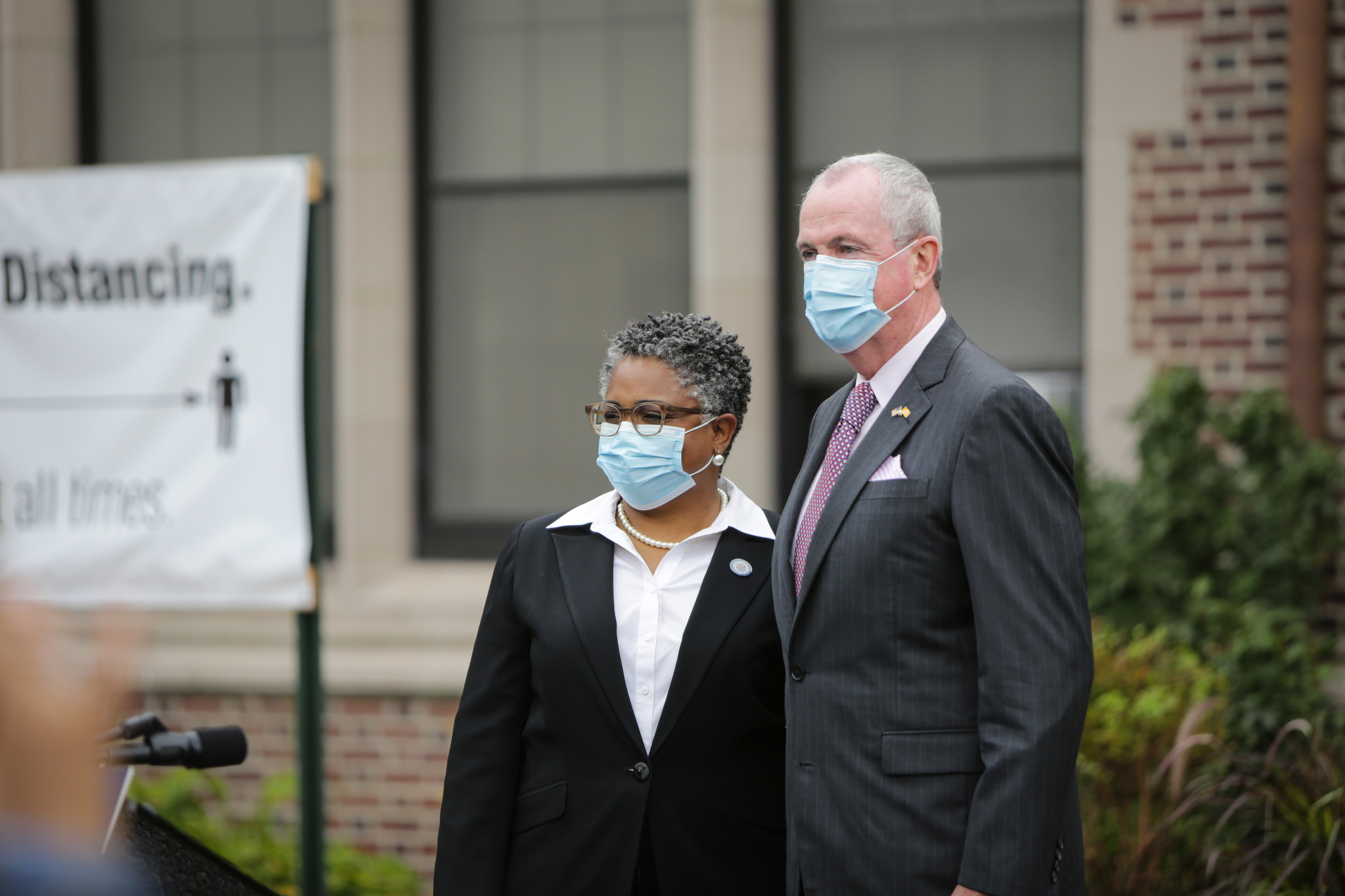
New Jersey’s Largest Charter School Pilots Coding for Non-STEM Classes Thanks to Grant from U.S. Education Department
January 5, 2023
BREAKING NEWS: Murphy Will Replace Education Commissioner
January 6, 2023New Report: Students REALLY Should Take Algebra in Middle School
A new report from Rutgers’ New Jersey State Policy Lab examines high school students’ enrollment in math courses in New Jersey schools. (See here for the full report.) The analysts find, to no one’s surprise, that students from high-poverty schools—which often enroll disproportionate numbers of Black, Brown, and low-income students—have far less opportunity to take advanced math courses, particularly Algebra 1 in eighth grade. This is important because without this middle school course students lose the opportunity to advance to higher-level courses in high school, like Pre-Calculus, Calculus, and Statistics. They’ll never catch up, which ties directly to enrolling in college and entering science, technology, engineering, and mathematics fields.
The authors, Elisabeth Kim, Ph.D., and Vandeen Campbell, Ph.D., blame this on high levels of segregation due to housing patterns.
“Part of the dialogue we hope to see in New Jersey is that of increasing access and enrollment in advanced math courses as well as better preparing and supporting students for success in those courses once enrolled. Taking advanced math courses improves math achievement and increases the likelihood of college enrollment and access to science, technology, engineering, and mathematics (STEM) fields. Closing these gaps will be a critical task for the state and school districts,” concludes Vandeen Campbell, Ph.D., co-author and Assistant Research Professor and Senior Quantitative Director at Rutgers University Newark.
Curiously, the authors, while calling out certain schools for bucking the math trend, never make reference to NJ public charter schools which are popular with Black and Brown families in low-income cities and often require rigorous math studies. For an example, see my report on Newark’s North Star Academy, where all students take Algebra 1 in middle school and the Dean says “the idea that math is only for people who are good at math doesn’t apply here.” (Then again, the Murphy Administration has put a hard stop on charter school expansion for schools like North Star so only 4% of low-income students of color in NJ have this opportunity.)
Typically students arrive at high school without any Algebra background. But, say the authors, “enrolling in Algebra 1 before high school—typically 7th or 8th grade—gives an advantage in increasing students’ likelihood of later enrolling in higher level math courses such as Calculus and Advanced Placement (AP) math courses during high school. However, when eligible students do not have access to Algebra I in middle school their likelihood of experiencing this enrichment is decreased.”
Where is the state Department of Education on this? Kind of nowhere. While the Student Learning Standards require prerequisites to prepare student for Algebra 1 in eighth grade, students can top out at Algebra 1 (and a little bit of geometry) by 12th grade, at least according to the new high school graduation test called NJGPA. In NJ, districts may handle the transition to high school in different ways. State graduation requirements entail three years of math in high school but that can be what the authors refer to as “Other Math,” which won’t help kids either meet college requirements without remediation or enter STEM fields.
As students proceed through high school, the gaps between “highly-segregated schools” and “low-segregation schools” in students mastering advanced math courses increases. The trends are worse for English Language Learners and students with disabilities.
Yet the report singles out some positive outliers: “segregated schools which enroll students in advanced math courses at rates much higher than the average for
their category.” Some of these are magnet schools but others may surprise you: the authors point to four high schools that enroll more than 25% of their juniors in Pre-
Calculus since 2016-17, on par with non-segregated schools: Malcolm X Shabazz in Newark, Hillside High in Union County, Pennsauken High School, and Dover High School.
The inclusion of Malcolm X Shabazz is odd and perhaps serves as a precaution for assuming enrollment=readiness for higher math courses. According to the most recent state data, no 9th-grade student at Shabazz achieved proficiency in Algebra 1; in 10th grade 2% of enrolled students did. And that’s not a Covid artifact. In the 2018-2019 school year Shabazz’s School Performance Report redacts student performance in Algebra 1 because the proficiency rate is so low. (The other schools did slightly better, but only slightly.) Later in the report the authors acknowledge that in some states studied, “taking Algebra instead of remedial math had no significant effect because students lacked sufficient skills to handle Algebra.”
Yet that’s no reason to give up. The report points to a study of middle schoolers in Wake County, North Carolina that finds “accelerated math placement of relatively low-achieving middle schoolers contributed to an increase in the fraction of time students spent in accelerated math later on (13 percentage points) (Dougherty et al., 2015). In Chicago, many lower-achieving students were immersed in higher-level academic coursework for the first time due to an Algebra-for-All policy. As a result, lower-achieving
students experienced a rise in the ability levels of their classroom peers.”
COMMENTARY: Forget About the ‘Math Wars’ and Look at Corey and Kyela




